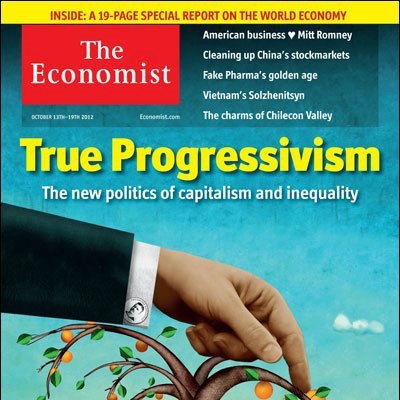
Research by economists at the IMF suggests that income inequality slows growth, causes financial crises and weakens demand
Confirmation came this week that turning a blind eye to the inequality and poverty in our midst is as dumb as it gets. Not mean-spirited, although you could argue that too, but plain dumb.
On October 13th the Economist produced a special report on inequality and called for ‘True Progressivism” (Here is a small online piece).
In that report it tabled the mounting evidence that inequality damages the prospects for everyone, not just those unfortunate enough to be struggling on low incomes.
[quote align=”center” color=”#999999″]..the economics establishment has become concerned about who gets what. Research by economists at the IMF suggests that income inequality slows growth, causes financial crises and weakens demand…More controversial studies purport to link widening income gaps with all manner of ills, from obesity to suicide…A survey for the World Economic Forum meeting at Dovos pointed to inequality as the most pressing problem in the coming decade (alongside fiscal imbalances). In all sections of society, there is growing agreement that the world is becoming more unequal, and that today’s disparities and their likely trajectory are dangerous.[/quote]
It’s not that inequality per se is bad, the problem is the size of the gap and how we got here. Paying talented, innovative risk-takers is necessary if you want a dynamic economy and society – so you will always have to accept some spread of income and wealth if you want to live in a thriving community.
But you don’t want the gap between the haves and have nots to become so large that radical political movements emerge that end up helping no-one, just redistributing what already exists and proving very poor at generating new wealth. The former eastern bloc countries are a classic example of this. Last year’s August riots in London are a teaser of what can occur.
Also when the gap gets too large, it becomes near-on impossible for talented youngsters from poor backgrounds to leap the divide and achieve to their potential, and we are all the poorer for that. Our economy won’t deliver unless our talent, wherever it comes from, can rise to the top.
Equally concerning is the fact that this recent widening in inequality has been caused not by talented people getting just rewards but by rules allowing some people to exploit political connections and consumer ignorance. The banking sector is a classic example of this. Success in persuading governments that catastrophe would follow if banks were allowed to fail meant bank executives could take high risks, share the high rewards among themselves when the risks paid off and pass the losses on to the tax payer when they didn’t. Weak consumer protection laws meant finance sector firms passed on ridiculous risks to their unaware customers while all the time pocketing a high and steady fee. This excessive remuneration in the finance sector arguably set a benchmark for other executives, lifting pay at the top for many industries.
Another contributor to widening inequality reported by the Economist and blindingly obvious in New Zealand is the presence of glaring gaps in the tax-system. Exemptions which can be exploited by those with wealth have – surprise, surprise – allowed the wealthy to get richer faster than everyone else. In New Zealand the most obvious exemptions relate to land and housing but there are others too, which allow capital gains on financial transactions to be exempt from tax.
The Economist calls for a ‘radical’ rethink – keeping to the same tax approach and tinkering with it just doesn’t cut it. Lifting top tax rates when your tax base is so leaky is pointless – in New Zealand it will only drive more investment into unproductive housing where the exemptions are, and out of business, doing nothing to boost revenues or reduce inequality. We need to close down those holes by taxing wealth whether it is invested in housing, land or something else.
The other side of inequality and the redistribution which addresses it is of course the welfare system. The Economist calls for greater targeting of benefits, but also new approaches, and points to the lessons to be learned from Latin America. We’d disagree that increased targeting makes sense for New Zealand – we simply can’t afford the dead weight costs of administering a tightly targeted system. The army of bureaucrats and consultants that deliver our present system costs hundreds of millions of dollars a year. Nor can we afford the indirect costs that targeting brings, like discouraging part time work.
We’d agree there is much to be learned from Latin America. Capital-based taxes like the one we recommended in the Big Kahuna have been recommended and implemented there. And the Brazilian family support policy the Economist reports as promising has more in common with the universal child payment recently recommended by the Expert Advisory Group to the Children’s Commissioner than the current system of targeting of child benefits in New Zealand which depends on parents working a minimum number of hours a week.
We’d agree wholeheartedly with the Economist that it’s time for new thinking and new solutions. What’s needed too – and what is most obviously lacking – is political courage
“At the core, there is a failure of ideas. The right is still not convinced that inequality matters. The left’s default position is to raise income-tax rates for the wealthy and to increase spending still further…A far more dramatic rethink is needed: call it True Progressivism.”

